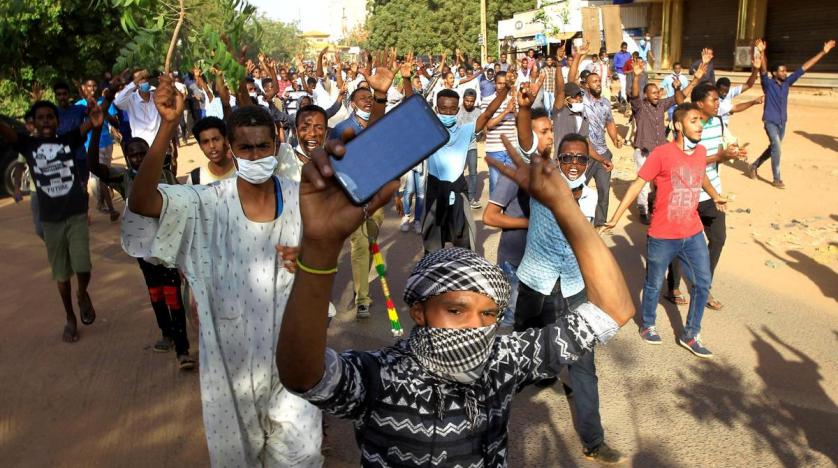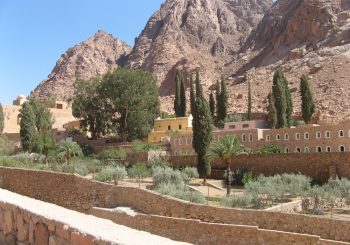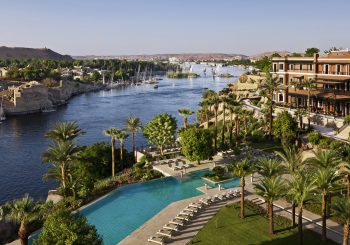
There have been widespread protests in Sudan for the past couple of days, the protests were over difficult economic conditions that had stricken the country.
According to the Washington Post, the protests were mainly about “rising prices and shortages of food and fuel. There has also been a liquidity crunch that forced authorities to limit bank withdrawals and caused long lines at ATMs. A devaluation of the Sudanese pound in October caused a significant spike in inflation, which now stands at around 60 percent, in some cases doubling the price of basic goods.”
In Khartoum Sudan’s capital, people have blocked some streets and started burning tires, chanting against the government and calling for al-Bashir’s to step down.
Omar al Bashir arrived in power through a 1989 military coup backed by Islamists. The coup overthrew a democratically elected but dysfunctional government led by then prime minister Sadeq al-Mahdi.
Prior to the demonstrations, Al Bashir was seeking a new term in office. Lawmakers loyal to him were already campaigning to rally support for constitutional amendments that would allow him to run in the 2020 elections.
In all the years that Bashir stood as president, Sudan’s economy had struggled, Al Bashir had failed to unite or keep the peace in the diverse nation. In 2011, South Sudan seceded, making Khartoum loose nearly three quarters of its oil wealth.
A year earlier, Bashir was indicted by the International Criminal Court for genocide in Darfur. Last week, he made a surprise visit to Syria, becoming the first Arab leader to visit the civil war inflicted country since the war began in 2011.
The uprising began in the city of Atbara located in River Nile state in the northeast of Sudan.
On the streets of Atbara where the National Council Party headquarters was burned down. Cries screaming “zanagat, zanagat” which roughly translates to ‘it got too tight’ were heard all over the city.
In an act to try to curb the protests, the Sudanese government has opt to block social media sites such as Facebook, Twitter, and Whatsapp, and President Bashir dismissed the current director of Communication and Information Technology Commission (CITC)
Significant Egyptian-Sudanese Relations

Sudan was incorporated into Egypt in 1821 through the Muhammad Ali dynasty invasion and occupation of Sudan followed by the Mahdist Sudan national revolution in 1885 and the subsequent reconquest of Sudan under British rule in 1899. Sudan gained independence in 1956.
It is worth mentioning that Sudan was only one of two members of the Arab League to show solidarity with Egypt in its Camp David peace initiatives with Israel in the late 1970s.
There have been some political issues in the past between the two countries, including the Halaieb triangle which is under Egyptian sovereignty, while Sudan claims the territory in-fact belongs to the nation.
Another disagreement is over the Grand Ethiopian Renaissance Dam, which Sudan views as legitimate and of regional benefit whereas Egypt views as a threat to its water security.
The Sudanese president declared on July 19, 2018 while the Egyptian president AL Sisi was on an official visit to the country that “We aim to build a strategic relation on economic, commercial, cultural and military and security fronts” as well as linking projects, pointing to the existence of three roads connecting the two countries.
Regarding the summit, Al Sisi tweeted “My happiness is enormous with my visit to the brotherly [country] Sudan; the ties between Egypt and Sudan are as eternal as the Nile, the vein of life and brotherhood between the two countries”
Is There a Threat to Egyptian National Security?
The protests in Sudan this time differ somehow from the ones in 2011.
In 2011, they were an emulation of the Tunisian module and the Arab spring, however this time it’s different, the economic conditions in Sudan have elevated dramatically, by which the people had no option but to march the streets in protest.
We must not forget what occurred in Libya, with Libya descending into chaos after the killing of Gaddafi and the Arab spring. Egyptian security forces have had a hard task in insuring its Western borders, with most of the terrorist attacks inflicted upon Egypt having originated from Libya. The difficulties lie in the length of the border as Egypt shares nearly 1,150 kilometers of the western border with Libya.
If the situation in Sudan was to result in a revolution and the ousting of president Al Bashir, that would surely spell trouble to the Egyptian side as there is fear that Sudan turns into another Libya.
Anarchy in Sudan will mean another uncontrolled border for Egypt to worry about as Egypt shares its longest boundary, which extends 1,273 kilometers, with Sudan.
Egyptian President Al Sisi has always stated that there was a commitment to ensure security of Gulf states, and said it is an integral part of Egypt’s national security. But this brings up the question as to whether Sudan must be considered with the same diligence as the Gulf states, given the fact that Sudan is on Egypt’s direct southern border.






Comments (4)
[…] The protests in Sudan, compared with the unfurling and contemporaneous events in Algeria, have sparked Egyptians to reflect over the current political situation in the country as well as the future of Sudanese-Egyptians relations. […]
[…] Source link […]